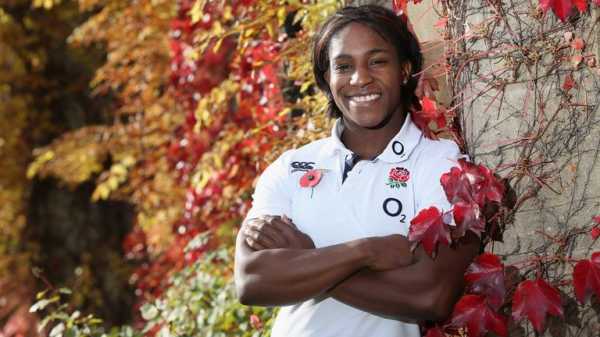
0:54
Maggie Alphonsi has warned that banning Swing Low, Sweet Chariot from being sung at England games is unlikely to be successful, and that empowering fans to make their own decision will be far more effective
Former England player Maggie Alphonsi does not think Swing Low, Sweet Chariot should be banned – although admits she stopped singing the rugby anthem when she learned it was rooted in American slavery.
The Rugby Football Union (RFU) is undertaking a review into the “historical context” of the song, a favourite among England supporters, which is routinely seen and heard at Twickenham, with lyrics on the stadium’s walls.
It has been a rugby union anthem for at least three decades and is regularly sung from the stands but its full history goes back much further – dating back to its credited author Wallace Willis – a freed slave from 19th century Oklahoma.
- England Rugby unveils plan to fight racism
- Black Lives Matter: PL players take the knee
- ‘Cricket can’t ignore Black Lives Matter movement’

It became a popular spiritual in the early 20th century and was popularised again among folk musicians during the civil rights movement of the 1960s.
Its current guise as a sporting anthem, anecdotally linked to Martin ‘Chariots’ Offiah, is one that has come under the microscope before as a potential act of cultural appropriation and current England star Maro Itoje told the Daily Mail this week he felt the lineage was “complicated”.

0:50 England great Maggie Alphonsi believes diversity at the top of sporting bodies is the key to the progress, and the World Cup winner is hoping to become RFU President one day
With the ongoing focus on the Black Lives Matters protests, the RFU has decided many who enjoy the song do not know its story and stands ready to address the issue.
Alphonsi told Sky Sports News that while she no longer sings the song, she does not feel it should be banned until people learn the historical context and come to that decision themselves.
“I remember singing it a lot when I was young, throughout my England career,” she said. “It wasn’t until someone told me about the song and its connections that I stopped singing it.
“It’s not my place to tell people to stop singing it, because you have to educate people and let them make that decision.

“The song does not sit easy with me when I hear it, because I now know the connections with it. But I also know that people singing it today are not singing it to offend.
“It’s just because a lot of people don’t know the history behind it, so it will be interesting to know when people start to learn and if they change their actions.
“I support the RFU for going away and actually conducting a review around it. I think the discussions will lead on to whether or not it should be banned.
“I personally don’t think it should be banned. We should educate people and empower them, to understand where it came from.”

Meanwhile, a spokesperson from the RFU said: “We need to do more to achieve diversity and we are determined to accelerate change and grow awareness.
“The Swing Low, Sweet Chariot song has long been part of the culture of rugby and is sung by many who have no awareness of its origins or sensitivities. We are reviewing its historical context and our role in educating fans to make informed decisions.”
Genevieve Glover was recently appointed as chair of the governing body’s diversity and inclusion implementation working group, with RFU chairman Bill Sweeney saying: “We need to do more to achieve diversity across all areas of the game, including administration.
“We have undertaken some very good initiatives at grassroots level to encourage more diverse participation, however that in itself is not enough.”
Sourse: skysports.com






